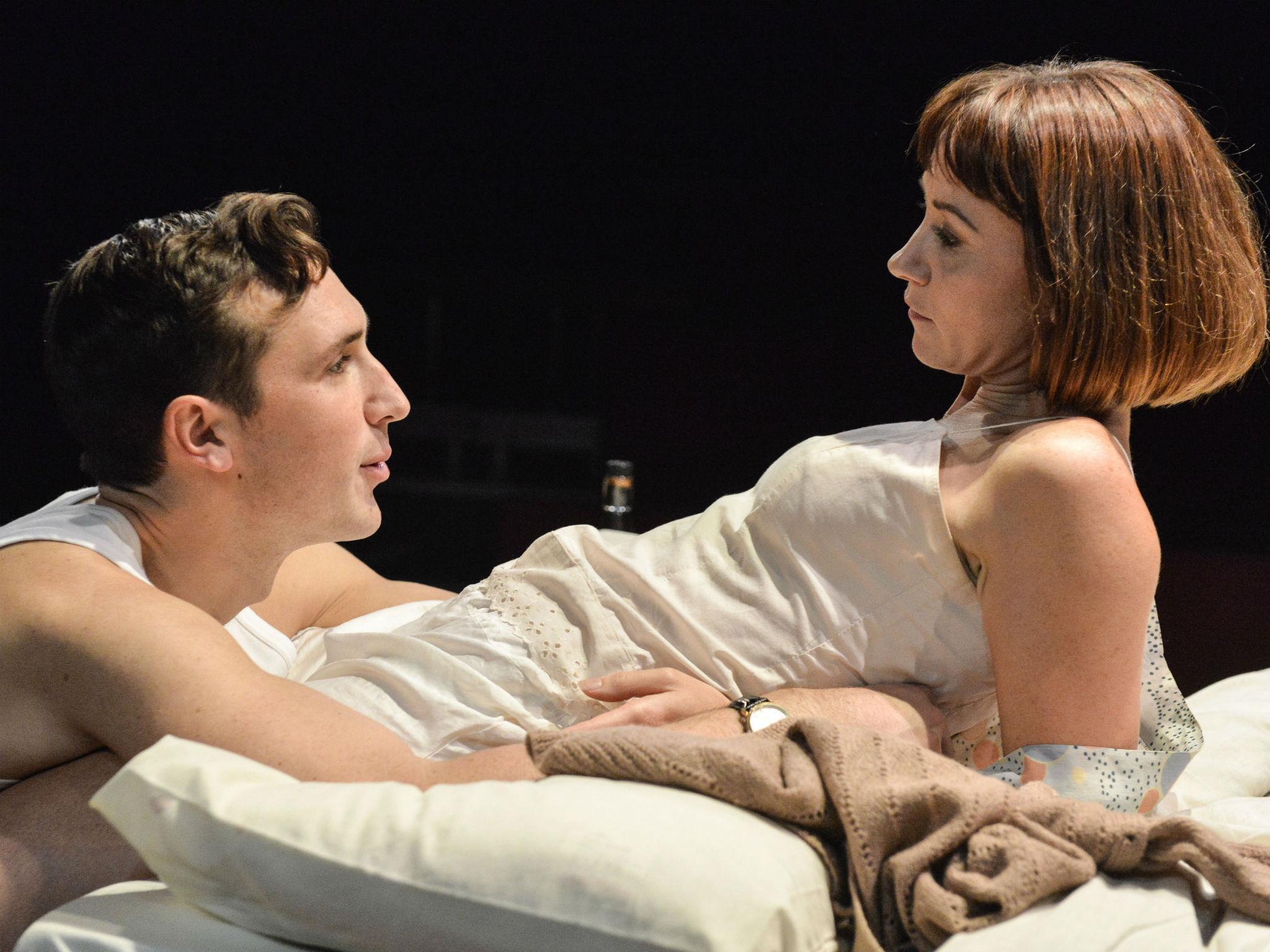Kiss Me, Trafalgar Studios, London, review: Claire Lams is enchanting as Stephanie
Richard Bean's two-hander 'Kiss Me' about a woman in 1929 desperate for a baby who has a brief encounter with a sperm donor is strikingly different from his mega-hit 'One Man, Two Guvnors'

Though he's now defined by his uproarious, crowd-pleasing farce, One Man, Two Guvnors, Richard Bean has written a vast number of plays in a wide range of forms. But Kiss Me nonetheless feels like a departure – an intimate two-hander strikingly different in tone and topic from his mega-hit.
The piece is set in 1929 in the bedroom of the Notting Hill flat where Stephanie (Claire Lams), a 32-year-old war widow, lodges. She's desperate to get pregnant, but the War and the Spanish flu have scythed down a generation of men of a suitable age. So Stephanie, who has plenty of pluck, signs up for an unorthodox method of solving the problem
Enter the personable but rather uptight Dennis (Ben Lloyd-Hughes). Under the auspices of a clinic run by the unseen Dr Trollope, it turns out that Dennis has fathered 202 children – and counting. It's a situation full of potential for both absurdity and poignancy, moods which leak into each other in Anna Ledwich's meticulous, beautifully acted production.
Lams is enchanting as Stephanie, spouting wisecracks out of nerves as Dennis, with a stiff awkwardness, specifies “the parameters” (he mustn't kiss her on the lips or tell her anything about his life) that they pretty soon overstep. The actress winningly exudes the witty hard-won modernity of this character who smokes and drives a munitions lorry for a living but has to acknowledge the stigma she will face as a single mother.
What kind of man goes round performing as a sort of interactive sperm donor to hundreds of women? The answer that would occur to many people is a pervert. Dennis maintains that, having been denied the opportunity to fight in the trenches (because of his father's business in the West Indies), he has a duty to compensate and make war against death by volunteering to impregnate war widows and women whose husbands returned home impotent. He describes how some of these latter wait around the house until he has finished.
Lloyd-Hughes gives a lovely, subtle portrayal of Dennis. You realise that the Eros v Thanatos claims are slightly grandiose delusions but that they are not cynical. If the character remains valuably a bit of a mystery, the flashes of haunted survivor's guilt look unfeigned and desolating.
In the later stages of this 70-minute piece, where there are relaxed conversations about, say, the clitoris and discovering the body after a repressive Catholic education, the talk and the jokes felt, to my ear, too free and modern-sounding. The play, which builds to an impressively moving climax, would be even better if it sometimes exercised a virtue not often deployed in the Bean canon – restraint.
Subscribe to Independent Premium to bookmark this article
Want to bookmark your favourite articles and stories to read or reference later? Start your Independent Premium subscription today.

Join our commenting forum
Join thought-provoking conversations, follow other Independent readers and see their replies